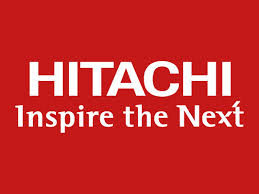

Doctors in the U.S. are embracing electronic health records, even if reluctantly, with 93 percent reporting they actively use an EHR system, according to a new report from Accenture.

In addition, nearly half (45 percent) of U.S. doctors surveyed said they regularly access clinical data outside their own organization, illustrating the growing momentum of health information exchange. That’s a 32 percent increase since last year, according to an announcement.
In all, 3,700 physicians in eight countries were polled: Australia, Canada, England, France, Germany, Singapore, Spain and the U.S.
Seventy-six percent of doctors in all countries reported that EHRs and HIE have had a positive impact on their practice, such as via reduced medical errors (76 percent) and improved quality of data for clinical research (74 percent). U.S. doctors, however, were the least likely (38 percent) to report that using EHRs and HIE reduced their organization’s costs. They also cited cost as the single greatest barrier to technology adoption.

U.S. physicians reported using health IT for basic clinical tasks including:
Receiving alerts while seeing patients (45 percent)
Using electronic lab orders (57 percent), a 21 percent annual increase
Receiving test results directly into an EHR system (62 percent), a 24 percent annual increase
Doctors in the U.S. were more likely than their peers in other countries to routinely use IT capabilities, such as e-prescribing (65 percent) and entering patient notes into electronic medical records (78 percent).
That’s not to say they’re happy about it, though. The level of dissatisfaction among EHR clients seems to be growing, according to a survey published in March by the American College of Physicians and AmericanEHR Partners, a web-based resource for EHR system selection and implementation.
User satisfaction in the survey dropped by 12 percentage points between 2010 and 2012, with the “very dissatisfied” group growing by 10 percentage points.
Amid usability and financial woes, few physicians have achieved Meaningful Use. In addition, some patients view doctors who use EHRs as less capable.
Health Affairs reported that the average physician loses $44,000 over five years with the technology implementation, and that just one-fourth of practices see a five-year return on investment.
Greater efficiencies that allow practices to increase patient volume, such as reducing documentation times, are among the ways that have been suggested to improve ROI.
Be a part of Elets Collaborative Initiatives. Join Us for Upcoming Events and explore business opportunities. Like us on Facebook , connect with us on LinkedIn and follow us on Twitter , Instagram.












